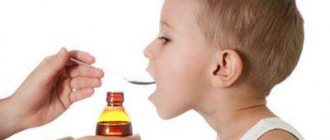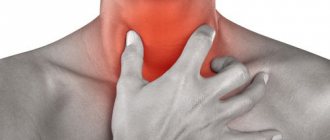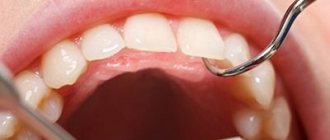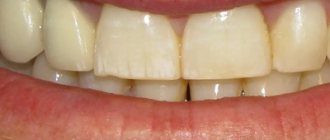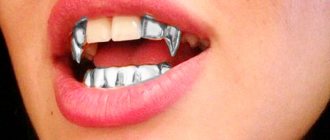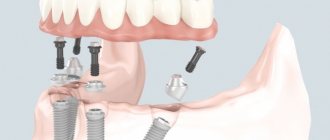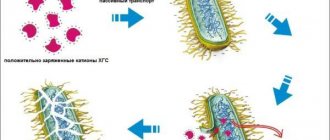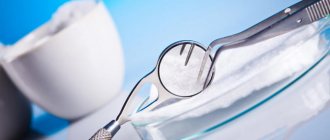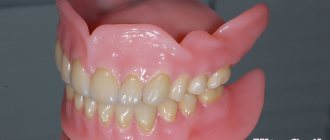October 11, 2010 - Monday
The position of a successful person today is a health fashion: playing sports, giving up bad habits, visiting cosmetologists and massage therapists... However, not everyone, not everyone, monitors the condition of their teeth. And an important role in this is played by misconceptions that have taken root in people’s minds. Indeed, in the age of developed technologies and the active implementation of innovative projects, the other side of the crazy intensification of life is the desire to get away from the hustle and bustle and the desire to believe in the miraculous and unreal.
However, if you still think that dental treatment is painful, or that a miracle paste will preserve your smile, and chewing gum will protect you from caries, congratulations, you still have not managed to separate myths and reality, and your knowledge Dentistry is full of prejudices.
How to ensure that these stereotypes, or one might say myths, do not prevent you from taking care of your smile and what really needs to be done to correct the situation, will be explained by the chief dentist of the Sverdlovsk region, Doctor of Medical Sciences, Professor, Head of the Regional Dental Clinic Marina Pavlovna Kharitonova .
Fact : The Sverdlovsk region is one of the regions with a high prevalence and average intensity of dental diseases: 14% of 6-year-old children already have permanent teeth affected by caries. Recently, diseases of periodontal tissues have also become much “younger” - more than half of adolescents aged 12-15 years have been diagnosed with tartar and increased bleeding of the gums. 96% of people over 35-40 years old have teeth affected by caries and inflammatory processes in the tissues surrounding the teeth (periodontitis). More than 70% of people over 65 years of age need orthopedic treatment, i.e. in prosthetics.
No one has ever died from a bad tooth
Reality: Infection coming from a diseased tooth (odontogenic infection) is one of the most dangerous. A diseased tooth is a source of pathogenic environment in the body. Numerous colonies of microorganisms live and multiply in the mouth, some of them quite aggressive. From a “neglected” diseased tooth, microbes can travel throughout the body, both independently and by causing allergization of the body, which leads to a decrease in immunity. In addition, ulcers on the roots with a decrease in immunity can lead to the development of serious complications (abscesses, phlegmon, osteomyelitis, etc.), and sometimes cause conditions incompatible with life.
Fact: Scientists have proven that the presence of multiple chronic foci of infection in untreated teeth in pregnant women leads to miscarriage and low fetal weight during childbirth.
What to do?
At least 1-2 times a year, undergo examination and professional hygiene at the dentist, which will help identify and effectively eliminate pathology in the initial stages of development.
Fact: Expenses of Russian residents, according to data at the beginning of the century, on certain types of goods and services (per year): - for vodka, beer, cigarettes - $12 billion, - for medicines - $2.2 billion, - for dental care – $600 million
Can't be confused with anything
— Toothache is not always felt in the mouth. Where else can you feel it and how can you understand that its cause is a bad tooth?
— The pain can radiate to the temple, lower jaw, even to the arms. It happens that “the whole head hurts.” Sometimes there is a hole in the lower tooth, but the upper one above it hurts. Due to hidden cavities, upon visual examination the patient cannot determine which tooth hurts. Only a doctor can do this.
The cause of the headache may be neurological problems, but it is better to immediately rule out the obvious - dentistry. Sometimes patients come to us based on a neurologist’s referral.
- Why is toothache so severe?
— A tooth is not just a “bone” that cannot hurt. Inside it there is a cavity filled with nerve tissue. In addition, all the main exits of nerve endings are located on the head. Toothache is a specific pain that cannot be compared with anything.
Dental clinic No. 3.
Altapress.ru.
— How do you understand whether to preserve the nerve or remove it? Why are dental nerves so important?
— Dental nerves can be removed in some cases according to indications. If the caries has reached the nerves, then we remove it, clean the canals and fill it. But the doctor is always determined to keep the tooth viable, which means that the neurovascular bundle cannot be touched.
Living tissues must be supplied with blood; such a tooth is stronger. If we remove the nerve, the tooth dies, although it can still function. It becomes fragile and easy to lose. It is easier to treat caries and prevent the tooth from eventually dying.
Radmila Labyntseva.
Altapress.ru.
If a tooth falls out, you can do just fine without it.
Reality: Each tooth in our wide smile is a link in the dental chain. Each group of teeth performs its own function: some bite off food, others chew it. When a tooth is removed or falls out, the shape of the teeth and jaws changes. The teeth adjacent to the missing one begin to shift and fill the vacated space, which can subsequently cause difficulties with prosthetics.
Fact: Significant tooth loss leads to eating more monotonous and less balanced food, a lack of vitamins and microelements, which can affect brain activity.
What to do?
Lost teeth need to be restored, which can be done in various ways. The options of choice are restorative orthopedic structures supported either by implants or by natural teeth. Fact: The fewer natural teeth a person has, the higher the risk of developing coronary heart disease and heart attack. People with fewer than 10 natural teeth are seven times more likely to die from a heart attack than those with more than 25 teeth.
Cardiovascular diseases
Pathogenic microorganisms that cause inflammation in the oral cavity can negatively affect the functioning of the heart and blood vessels. If you ignore the problem and do not carry out timely treatment, then the infection may soon migrate from the source of inflammation through the bloodstream to the heart.
Infection provokes a number of progressive pathological processes in this organ. Metabolism is disrupted, toxic waste products of microbes are formed. As a result, infectious agents infect organ tissues and create foci of secondary infection in them. As a result, the likelihood of pericarditis, endocarditis and other diseases increases.
The vessels through which the pathogen moves to the heart also become the target of damage. Their walls become inflamed, increasing the likelihood of hemorrhages, blood clots, blood pressure surges, etc.
Chewing gum, floss and toothpaste are a panacea for caries
Reality: Even the best toothpaste in the world will not cure your tooth! Chewing gum only restores the acid-base balance disturbed during meals. Floss, or, as they more often say, dental floss, is also not a doctor for our teeth. All of the above remedies are good for preventing the occurrence of carious lesions, but given the existing pathology, they are not able to not only cure, but even stop the process.
What to do?
It is necessary to use all of the above means, but only along with systematic visits to the dental office for preventive examinations, professional hygiene and sanitation of the oral cavity, i.e. treatment and maintenance in proper condition of all teeth with one or another pathology.
The more expensive the toothbrush and toothpaste, the better they are.
Reality: The cost of hygiene products is not an indicator of their usefulness specifically for you. The structure of dental tissues, their location, color, shape, as well as characters, are different for everyone.
What to do?
The selection of oral hygiene products should only be carried out by your treating dentist. In addition, the doctor will evaluate the correctness of your usual cleaning method and make the necessary adjustments.
Fact: The quality of teeth cleaning is influenced not so much by the toothbrush and toothpaste you choose, but by the correctness and duration of this manipulation. It has been proven that with a recommended time of about 3-5 minutes, most often the average person on the planet spends about 30 seconds brushing their teeth. Tip: To stay on time, turn on your favorite song and brush your teeth from the first chord to the last. On average, the duration of songs is the 3-5 minutes we need. Both fun and useful!
Diabetes
The presence of microbes in circulating blood causes a change in its rheological properties. An increase in viscosity leads to disruption of transport function, a decrease in blood flow speed, and inhibition of metabolism. In turn, metabolic disorders reduce the ability of insulin to regulate blood sugar levels. Glucose concentration increases.
As a result, most people gain weight and develop diabetes. Under conditions of high sugar levels, irreversible changes occur:
- tissue nutrition is disrupted;
- the walls of blood vessels are damaged;
- stagnation develops;
- the quality and life expectancy decreases.
If you take several x-rays in a row, you can get high levels of radiation
Reality: According to one of the leading specialists in dental radiology, D.V. Rogatskin, one intraoral photograph of a tooth corresponds to approximately one microsievert.
The radiation dose when taking one three-dimensional image on a dental tomograph is approximately equal to the radiation dose from a panoramic image and is about 20-50 microsieverts. What to do?
You should not apply to a peaceful dental office the same concepts that are used at a nuclear test site. During the treatment process, you can and should take as many x-rays as your doctor needs, and if necessary, do not be afraid to do 1-2 studies per year on a dental tomograph. It is necessary to understand that your attending physician takes a picture, or a series of pictures, so that the quality of treatment is at the proper level and the tooth will serve you for many more years. And such a modern method as tomography of the maxillofacial area goes beyond the boundaries of conventional x-ray examination and often allows the doctor to see in volumetric form the pathology that cannot be determined on ordinary photographs.
Who will not benefit from anesthesia?
— How to relieve fear of the dental office?
— 80% of success in work depends on the professionalism of the dentist, 20% on the patient’s attitude towards treatment and his psychological comfort. I see my goal as removing all fears from patients. They need to explain in as much detail as possible what we will do and what it will look like - all the treatment tactics.
Families come to us, sometimes for decades. So we, one might say, become family doctors.
In addition, visiting the dentist is now much more convenient than before. For example, the patient does not need to sit in the corridor and wait for an X-ray image; everything comes immediately to the doctor’s computer.
Dental clinic No. 3.
Altapress.ru.
Dentistry is a field that is developing by leaps and bounds. Today, doctors sometimes have to redo work that someone else did 10-15 years ago. Because modern equipment and filling materials have appeared that provide a long-term guarantee of reliability.
Currently, all this is possible not only in commercial clinics, but also free of charge in the compulsory health insurance system.
— Basically, a person is afraid of pain. What innovations are there in terms of anesthesia?
“We are now working with modern drugs, they are effective and at the same time gentle. They can even be used when working with patients in the early stages of pregnancy.
Radmila Labyntseva.
Altapress.ru.
There are contraindications. For example, pain relief is not possible for people with cardiac arrhythmias. But even here the doctor can choose the most suitable drug. No one now endures pain in dentistry.
“People are also scared by the fact that anesthesia does not help everyone. What are the chances that pain relief will not occur?
— It depends on the individual characteristics of the organism. Most often, anesthesia does not help if a person takes certain medications. For example, a toothache, and the patient does not go to the doctor for two weeks and drinks painkillers in packs. Then the effectiveness of anesthesia decreases.
The same thing happens in advanced cases when there is a large inflammatory process.
Dental clinic No. 3.
Altapress.ru.
Heredity is to blame for bad teeth
Reality : The role of heredity in the health of our teeth is extremely small and is manifested in the structure and properties of tooth tissue: enamel and dentin. In fact, a person even with not very good heredity has every chance of keeping his teeth healthy.
What to do?
Take proper care of your teeth throughout your life and make regular visits to your dentist.
Fact: Today, there is an opposite theory that lesions of specific teeth may indicate a predisposition to the pathology of a particular organ or an already existing disease.
Correlation of teeth affected by caries with pathology of internal organs
General conditions
Existing or past diseases manifest themselves in the form of various inflammations and diseases of the oral cavity, teeth and gums.
- If in childhood you suffered from severe flu or measles, then in adulthood this can result in diseases of the periodontium (periodontitis, periodontal disease) and teeth (pulpitis).
- If your body suffers from a lack of water or it is difficult to remove it from the body, do not be surprised by bleeding and gum inflammation.
- Vitamin deficiencies, especially a lack of vitamin C, are the cause of loosening and even tooth loss.
- Diseases of the gastrointestinal tract manifest themselves in the form of a whitish coating on the tongue, cracks and inflammation of the tongue.
